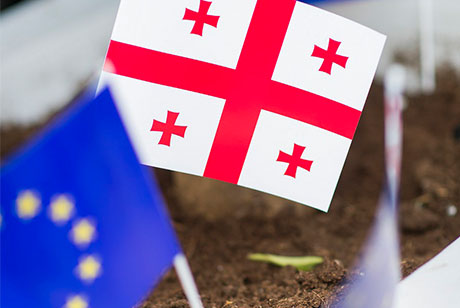EU: Conflicts in Georgia should remain high on European political agenda

The European Union (EU) welcomes the Council of Europe’s (CoE) latest report on the conflict in Georgia and considers it important to keep this issue high on the political agenda of the organisation.
CoE Secretary General Thorbjorn Jagland presented his 15th Consolidated Report on the Conflict in Georgia yesterday. He and CoE member states supported Georgia and called on Russia to stop its illegal actions in Georgian regions of Abkhazia and Tskhinvali region (South Ossetia).
The EU released a statement encouraging the Secretary General to continue the submission of such reports covering, amongst other issues, the question of human rights protection in the areas affected by the conflict in Georgia.
EU Local Statement on the SG's 15th Consolidated report on conflict in Georgia - European External Action Service https://t.co/BGzXCGQaZM
— Mikheil Janelidze (@JanelidzeMkh) April 21, 2017
The statement read that the EU does not recognise the constitutional and legal framework within which the so-called elections March 12, 2017 in occupied Abkhazia have taken place.
Also, the EU does not recognise the decision by the de facto authorities in occupied Tskhinvali region to conduct so-called "presidential elections” and an illegal "referendum” on changing the name of the Georgian region held on 9th April 2017.
The EU underlined the importance of a dialogue between the parties to the conflict.
"The EU remains highly committed to support peace-building and conflict resolution in Georgia, including through its co-chairmanship of the Geneva International Discussions and the EU Monitoring Mission on the ground,” the statement read.
It added that the EU will continue to support a wide range of humanitarian, protection, development and other cooperative activities in breakaway Abkhazia, in partnership with international and local NGOs, in particular through the Confidence-Building and Response Mechanism. The EU called for unimpeded humanitarian access to breakaway Tskhinvali region, where similar actions are needed.
"The EU is deeply concerned by the advancing implementation of the so-called treaties and deriving sub-agreements, including actions that combine Russian armed units and armed units of so-called authorities of the Georgian regions of Abkhazia and Tskhinvali region/South Ossetia, that are detrimental to the efforts to strengthen security and stability in the region and violate Georgia’s sovereignty and territorial integrity, contradict principles of international law and the international commitments of the Russian Federation, including those undertaken within the CoE,” the EU said.
It added that the human rights situation on the ground remains worrisome, and welcomed the efforts of the Georgian government to continue its progress in ensuring durable solutions in terms of IDP reintegration, that support for socio-economic integration of IDPs has been increased under the new IDP Livelihood Action Plan, and that remaining difficulties with respect to access to drinking and irrigation water, heating and livelihoods, as well as access to social and medical infrastructure, were being addressed.
 Tweet
Tweet  Share
Share